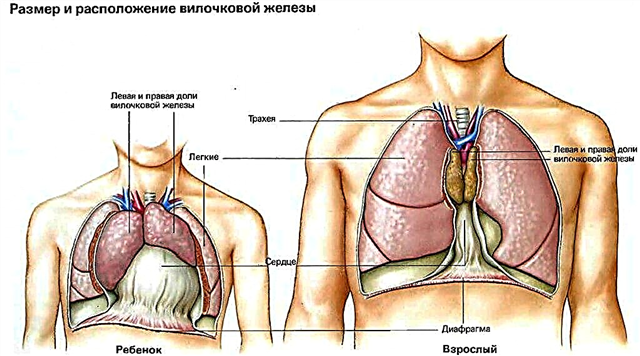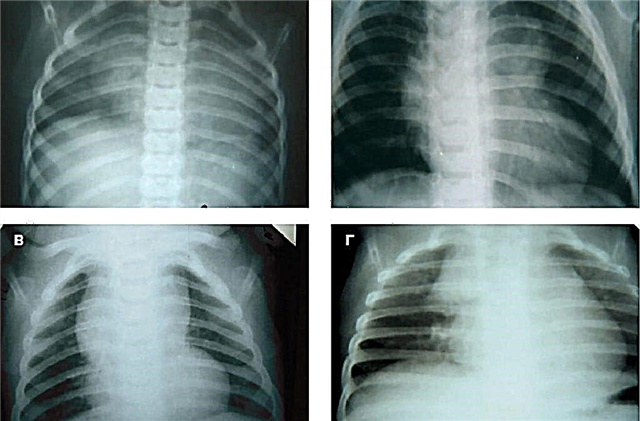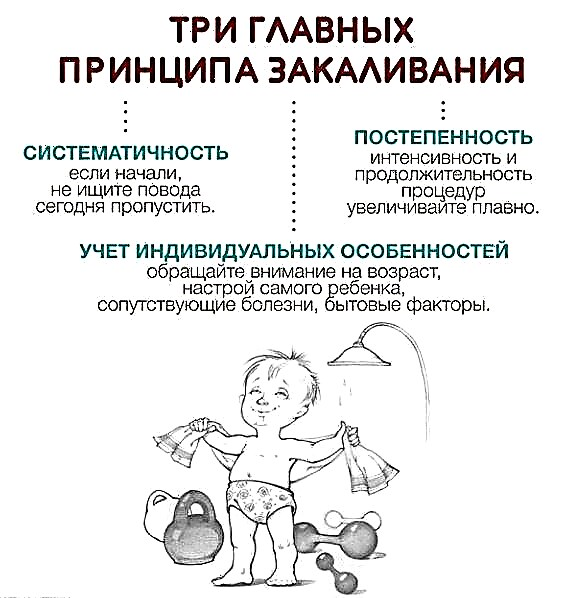Why is thymomegaly dangerous?
Back in 1960, scientists and doctors proved that the thymus is the central organ of the child's immune system. The thymus gland produces cells that are responsible for the immune system of the child (T-lymphocytes) and affects the functioning of the endocrine and immune systems of the body.
However, the onset of the development of thymomegaly, as a rule, proceeds without pronounced clinical changes, which would allow parents to suspect a deterioration in the child's health. The number of people who have information about the development and functioning of the thymus normally is not large, and therefore it becomes a very difficult task for the population to recognize the pathology of this organ.
Reasons for the development of thymomegaly
The reasons are varied and largely refer to the period of pregnancy of the mother. Doctors divide all the reasons for the development of thymomegaly into two groups, which can also be combined with each other.
Endogenous (arising within the body itself)
- Prematurity and immaturity of the child at birth.
- A long anhydrous period of childbirth or a long period of passage of the child through the birth canal, in connection with which the newborn has a prolonged lack of oxygen.
- Injuries to the child during birth (birth trauma).
- Violations of the baby's respiratory system (congenital and acquired diseases of the respiratory system, as well as long-term presence of the child on artificial lung ventilation).
- Presence of persistent and intense jaundice in an infant for a long time (more than 3 weeks).
- Previous severe bacterial infections transferred by the child.
- Congenital disorders of the lymphatic and endocrine systems (lymphatic-hypoplastic diathesis).
- Disorders of the mother's previous pregnancies (miscarriages, abortions).
- Late pregnancy of the mother (after 40-45 years).
- Toxicosis during pregnancy (preeclampsia, eclampsia).
- The presence of Rh-conflict (Rh-positive in the child's blood and negative in the mother).
- The presence of infections in the mother before or during pregnancy.

Exogenous (occurring outside the body)
Adverse effects of the external environment on the mother during pregnancy or the baby after birth (prolonged exposure to high or low temperatures, high or low barometric pressure, ionizing radiation, ingestion of corrosive and toxic substances, including smoking and alcohol consumption by the mother).
According to the results of many scientific studies, the fact of the genetic condition of thymomegaly has been confirmed. This pathology of the thymus is associated with B15 HLA antigens; eighteen; 27, which were identified during genetic research in individuals with thymomegaly.
Classifications of thymomegaly
- Congenital (primary) - the gland is formed correctly, but larger than the normal size.
- Acquired (secondary) - due to dysfunction of other glands. Perhaps not just an enlargement of the gland, but also an abnormal development of the shape and structure of the gland.
- Acquired (functional) - an increase and disruption of the thymus gland, which accompanies viral (ARVI) or bacterial (pneumonia) diseases.

There are 3 degrees of thymus enlargement. They are determined by measuring the size of the gland and the level of the contour of the gland on the roentgenogram and calculating the cardio-thymic-thoracic index (CCTI).
- Thymomegaly 1 degree in children - KKTI value 0.33-0.37.
- Thymomegaly 2 degrees in children - KKTI value 0.38-0.42.
- Thymomegaly 3 degrees in children - value of CCTI 0.43-3.
Thymomegaly manifestations
Each child has individual manifestations and they can be determined with the second, and most often only with the third degree of thymomegaly. There are 4 main groups of signs (syndromes).
Syndrome of compression by the thymus of vital organs located nearby
Compression of the trachea: shortness of breath, noise when breathing, snoring, coughing, less often asthma attacks.
Compression of the vagus nerve - slowing down of the heart rate, fainting, regurgitation and vomiting, hoarse cry and voice.
Compression of blood vessels - swelling of the neck, vasodilation of the neck and chest.

Immunity disorder syndrome
It manifests itself as an atypical course of viral diseases (ARVI) - a sharp significant repeated increase in temperature, cough with attacks of suffocation, swelling of the respiratory tract, a long course of the disease, frequent bacterial complications.
Lymphopliferative syndrome
It is expressed in an increase in lymph nodes, an increase in the tonsils at the root of the tongue; an increase in the spleen, the number of lymphocytes is more than normal in the blood test.
Endocrine metabolic disorders syndrome
It is accompanied by obesity, hyperpigmentation (darkening) of the skin of the fingers, a decrease in the child's pressure, a decrease or increase in appetite.
To make a diagnosis of thymomegaly, it is necessary that the symptoms described above appear for at least 4 months, and the size of the gland has been determined radiographically.
How to recognize thymomegaly?
Diagnostics is based on basic research.
- Taking anamnesis (history of development and diseases of mother and child).
- External examination of the patient (examination of the chest and neck area, palpation (by touch) determination of the condition and size of the thymus).
- X-ray of the neck and chest (determining the exact size and displacement of the thymus).
- Ultrasound examination of the thymus and adrenal glands (determination of the homogeneity of its structure).
- Blood and hormonal tests (assessment of the level of lymphocytes, which normally changes depending on the age of the child).

Treatment of thymomegaly
Drug-free treatment
Prescribed strictly by the attending physician! Consists of non-drug methods: regimen (exclusion of stressful situations); limiting contact with infectious patients; diet (restriction of carbohydrates and animal fats).
Essential drugs
Drug therapy: Immunomodulators (ginseng, eleutherococcus) for frequently ill children (prescribed after consulting an immunologist); with severe course and stress, glucocorticoids (prednisolone preparations) are prescribed.
Is vaccination allowed
Grade 1 and 2 thymomegaly is not a contraindication to vaccination. In case of grade 3 thymomegaly, a withdrawal from vaccination is given for 6 months and further is allowed only with the consent of the immunologist.

Complications of thymomegaly
With improper treatment, complications are possible, such as recurrent infectious diseases, allergic reactions, an increased risk of sudden infant death syndrome, adrenal hypofunction, critical compression of vital organs.
Conclusion
The detection of an enlarged thymus at a late stage of the disease increases the duration and complexity of treatment, as well as the likelihood of developing various adverse complications from the immune, endocrine and nervous systems of the body.
Therefore, parents need to be wary of any, even insignificant in their opinion, changes in the child's health, to be regularly monitored by a local pediatrician and if you suspect an enlargement of the thymus gland, immediately consult a pediatrician or endocrinologist!
Article rating:



